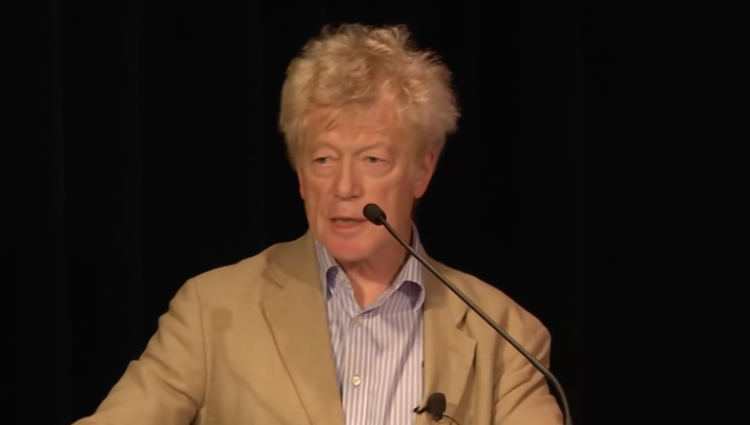Roger Scruton argued that the bureaucratisation of politics is replacing deliberative debate with a rigid tick-boxing exercise, substituting social justice for natural justice, imposing laws and regulations without our consent, and developing a group of activist politicians who prioritise the short-term over the long.
 A key component of the late Sir Roger Scruton’s political thinking was his theory about the bureaucratisation of politics. Conservatives both in the United States and in the United Kingdom have issued warnings that the bureaucratic class is now running the show. In the UK, this class of bureaucrats has been called ‘The Blob,” and in the US the term “administrative state” has been coined. Former UK Prime Minster Liz Truss, in her book, Ten Years to Save the West: Lessons from The Only Conservative In The Room, published in 2024, argues that “administrative state has accumulated a huge amount of power” and that “we see these forces are clearly at work across the free world, and perhaps especially in the English-speaking world.” Scruton had been writing and conceptualising about the “huge amount of power” that has been accrued to the bureaucratic state in Britian for many years before Truss’s book appeared. Indeed, Scruton was concerned about and deplored the bureaucratisation of politics.
A key component of the late Sir Roger Scruton’s political thinking was his theory about the bureaucratisation of politics. Conservatives both in the United States and in the United Kingdom have issued warnings that the bureaucratic class is now running the show. In the UK, this class of bureaucrats has been called ‘The Blob,” and in the US the term “administrative state” has been coined. Former UK Prime Minster Liz Truss, in her book, Ten Years to Save the West: Lessons from The Only Conservative In The Room, published in 2024, argues that “administrative state has accumulated a huge amount of power” and that “we see these forces are clearly at work across the free world, and perhaps especially in the English-speaking world.” Scruton had been writing and conceptualising about the “huge amount of power” that has been accrued to the bureaucratic state in Britian for many years before Truss’s book appeared. Indeed, Scruton was concerned about and deplored the bureaucratisation of politics.
Bureaucratic Governance From “Elsewhere”
In England: An Elegy, Scruton writes that “nothing is better known about the English than the fact that they developed over centuries a unique political system, and then planted it around the globe.” This political system was not designed from a grand theoretical blueprint. Scruton, utilising a Smithian phrase, argues that this political system arose by “the invisible hand of tradition and compromise” and was being crushed by the bureaucratisation of politics.
Scruton argues that local government in England has been turned into a “convenience of the bureaucrats”, rather than being based on local, real places where people dwell. This type of bureaucratisation of government in practice squashes local government and puts power into the hands of people who are “elsewhere” and not living here side-by-side with us. Being governed from elsewhere may not be a great imposition for the Elites, as “elsewhere is where they always are.” Nevertheless, according to Scruton, “for many ordinary voters, whose networks are also neighbourhoods, the issue of who governs us, and from where, is real and urgent.” This bureaucratic governance of Britain from “elsewhere” includes the imposition of legislation from foreign judges. Scruton writes in Our Church: A Personal History of the Church of England that “legislation is now initiated by unelected judges in the European Court of Justice and the European Court of Human Rights”. Scruton argues that neither of these institutions has any sympathy for the Christian concept of “natural law” or the Westminster Parliament. The effect of this bureaucratisation of politics is a turning way from deliberative debate and natural justice.
According to Scruton, a part of what was “distinctive in the English approach” to politics and their political institutions was that they had the purpose of mobilising “consent”. Despite this, there has been a bypassing of the Westminster Parliament—and thus a bypassing of consent—as “the European treaties have imposed laws on our country without discussion in Parliament”. The European bureaucracy was dedicated to the production of European bureaucratic “directives” and the pursuit of so-called “social justice”. These European bureaucratic “directives” came fast and were many. This was in contrast to Scruton’s ideal of slow change with minimal statutes. This process was overwhelming the “invisible hand of tradition and compromise” in which the English system of governance grew. The result was that “statute is finally killing off the common law.” This is a matter of fundamental significance since, as Scruton argues in Were We Are: The State of Britian Today, our freedom is rooted in common law.
“Delay Is Life” and the Dead in Politics
To Scruton this was concerning, as “it is easier to lose good things than to create them”. The task of politics, as he saw it, is to protect inherited laws and institutions from unnecessary experiment. According to Scruton, political amateurism (what Scruton meant by this was that politicians are not paid for the role but do it out of service and duty) was inclined towards Lord Salisbury’s maxim that “delay is life”. This type of political orientation understands that change should be managed, when necessary, but it also should be prevented when it is not. Scruton suggests that civil peace itself requires this political orientation. Nevertheless, the current political professionalism is “activist” in nature. Politicians, Scruton argues, in this mode of “professionalism,” see themselves as the “originator of change” and no longer as representatives of the people and their local areas, but as representatives of the government to the local people.
Drawing on Edmund Burke, Scruton believed that representation includes not merely the living only, but also the dead and the unborn. G.K. Chesterton, in a chapter in in his book Orthodoxy, titled “The Ethics of Elfland,” called this position “the democracy of the dead”. As Chesterton put it: “Tradition means giving a vote to most obscure of all classes, our ancestors…. Tradition refuses to submit to the small and arrogant oligarchy of those who merely happen to be walking about”. Scruton argues that “to make democratic choice rational it must take place within institutions and procedures.” These institutions and procedures “must not give a voice merely to minorities but to past and future majorities.” Moreover, “these institutions and procedures would, in effect, urge on the representatives an attitude of trusteeship, whereby the immediate demands of the living could be moderated or deflected in the interests of the long-term future of society.”
Scruton believed that “the English constitution was an attempt to stand as a bulwark against the demands of the living people” and “to ensure that the voice of the land, with all its burden of corpses and all its promise of the future life” was included. However, the English constitution was being undermined by the bureaucratisation of politics, as it removes constitutional procedures and removes the dead from the decision-making process, placing it in the hands of bureaucrats. Sir Roger concluded that the bureaucratisation of politics is replacing deliberative debate with a rigid tick-boxing exercise, substituting social justice for natural justice, imposing laws and regulations without our consent, and developing a group of activist politicians who prioritise the short-term over the long.
The Imaginative Conservative applies the principle of appreciation to the discussion of culture and politics—we approach dialogue with magnanimity rather than with mere civility. Will you help us remain a refreshing oasis in the increasingly contentious arena of modern discourse? Please consider donating now.
The featured image is a still taken from the video, “Roger Scruton discusses the EU in Nexus Masterclass “Brexit: Yes or No?’,” uploaded by The Nexus Institute. This file is licensed under the Creative Commons Attribution 3.0 Unported license, courtesy of Wikimedia Commons.









